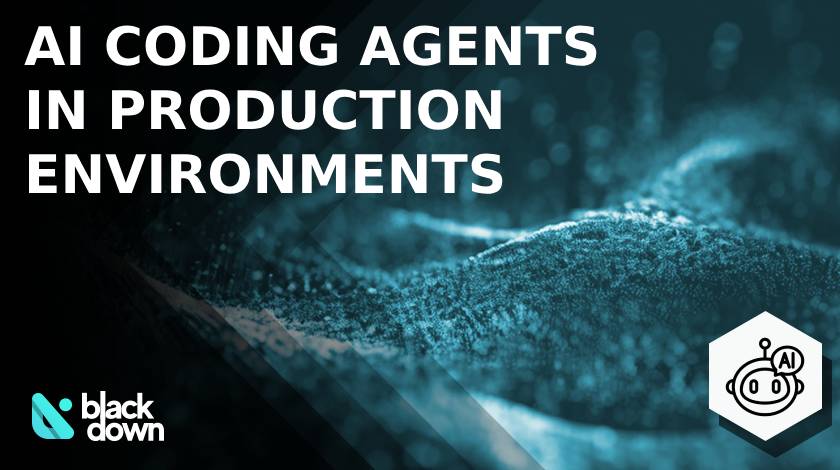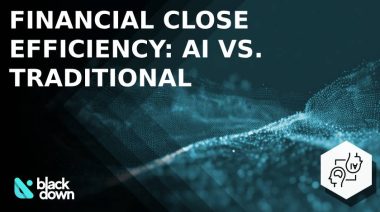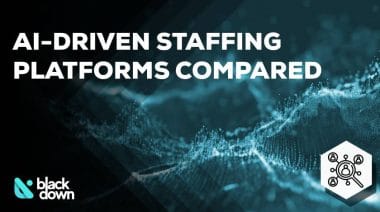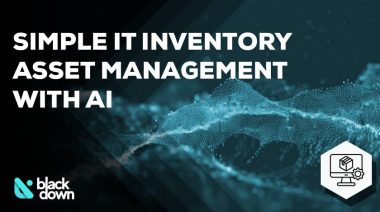The last few years have been transformational for the software development industry, with artificial intelligence evolving rapidly from basic autocomplete to coding agents that can generate, test, and even deploy code.
But as more organizations start seriously considering deploying AI at the heart of their projects, one question becomes increasingly urgent: Are AI coding agents ready for production?
The answer isn’t black and white. In some areas, AI is already delivering production-grade results. In others, it still requires close supervision and human input to avoid costly mistakes. As capabilities continue to mature, developers and teams must consider how and where AI fits into their workflows.
In this article, we explore where AI is delivering real value right now, why human oversight is still necessary, and what needs to happen for AI to take the lead in the development process.
Areas Where AI Can Fully Automate Production
While fully autonomous software development is still on the horizon, there are already areas where AI coding agents are reliably contributing to (if not fully taking over) production workflows.
One example is in frontend development, where AutonomyAI has made it possible to generate production-grade UI components directly from design files and natural language prompts.
What sets it apart is its use of autonomous coding agents that embed directly into an organization’s codebase. Rather than working in isolation, these agents interact with real project files, adapting their output based on the structure, styling conventions, and technical constraints of each application.
“Our goal is to democratize access to front-end expertise and make exceptional UI/UX execution both scalable and affordable using AI,” says Adir Ben Yehuda, CEO and co-founder of AutonomyAI.
Another standout example is in website development, in which Lovable.ai has enabled non-technical users to generate complete, visually polished websites using just a few simple prompts.
Human Oversight is Still Necessary
But with all the progress over the last few years, it may still be too early to trust AI coding agents with complex, high-stakes production code without close human oversight. The progress in contextual understanding is impressive, but AI still tends to lack when it comes to navigating security nuances and making good long-term architectural decisions that define truly reliable software.
The security aspect is particularly concerning. “10% of real prompts leak private data, 42% of generated snippets hide security flaws, and the models can even ‘agree’ with wrong ideas, a trait called sycophancy,” argues Vladislav Belozerov, a senior software engineer at Xperi. “Firms must tag and review every AI-generated line of code, keep prompts and outputs inside private or on-premises deployments, obey emerging safety regulations, and add tests that catch sycophantic answers,” concluded Belozerov.
Beyond security, architectural decision-making is another area where AI needs improvement. The code AI produces now is functional, but most AI agents lack the judgement to design applications in a way that supports long-term strategy and finds a balance between performance and scalability.
Until these flaws are sufficiently addressed, AI must remain the copilot, not the captain. With how quickly models are advancing both in terms of accuracy and contextual understanding, we’re likely not that far removed from a reality where AI agents sit at the heart of production.
What Needs to Happen for Full Automation
While we’re not quite there yet, many experts believe that it is only a matter of time before AI takes on the lead role in software development projects. Meta founder and CEO, Mark Zuckerberg, estimates that AI will write most of the company’s production code within 12-18 months, matching the quality of top software engineers.
“And I don’t mean like autocomplete. Today, you have good autocomplete, where if you start writing, AI can complete that section of the code. I mean, if you give it a goal, it can run tests, it can find issues, it will write higher quality code than an average very good person on the team already” he explains.
So what needs to happen for that to become a reality?
As discussed in the previous section, AI still needs to make a leap forward in understanding and handling critical areas like security. Models must evolve to a point where they can identify and avoid introducing vulnerabilities, while also adapting to project-specific requirements.
Another transition that needs to happen is for organizations to start integrating AI agents directly into their development workflows, rather than keeping them confined to IDEs. This is the exact approach Meta is taking, so AI can not only generate code, but also run tests, find bugs, and fully contribute to shipping production-grade software with minimal human intervention.
Final Thoughts
In the last two to three years, AI has made more progress when it comes to software development than many thought possible. But as many experts agree, this is just the beginning of what AI will eventually be capable of.
While it may not be the case today, it is very likely that over the next few years, AI coding agents will become an essential component of the development lifecycle, capable of delivering production-grade code and pushing human developers to focus more on architecture and strategy.
Alexandra Chen
Related posts
Popular Articles
Best Linux Distros for Developers and Programmers as of 2025
Linux might not be the preferred operating system of most regular users, but it’s definitely the go-to choice for the majority of developers and programmers. While other operating systems can also get the job done pretty well, Linux is a more specialized OS that was…
How to Install Pip on Ubuntu Linux
If you are a fan of using Python programming language, you can make your life easier by using Python Pip. It is a package management utility that allows you to install and manage Python software packages easily. Ubuntu doesn’t come with pre-installed Pip, but here…











